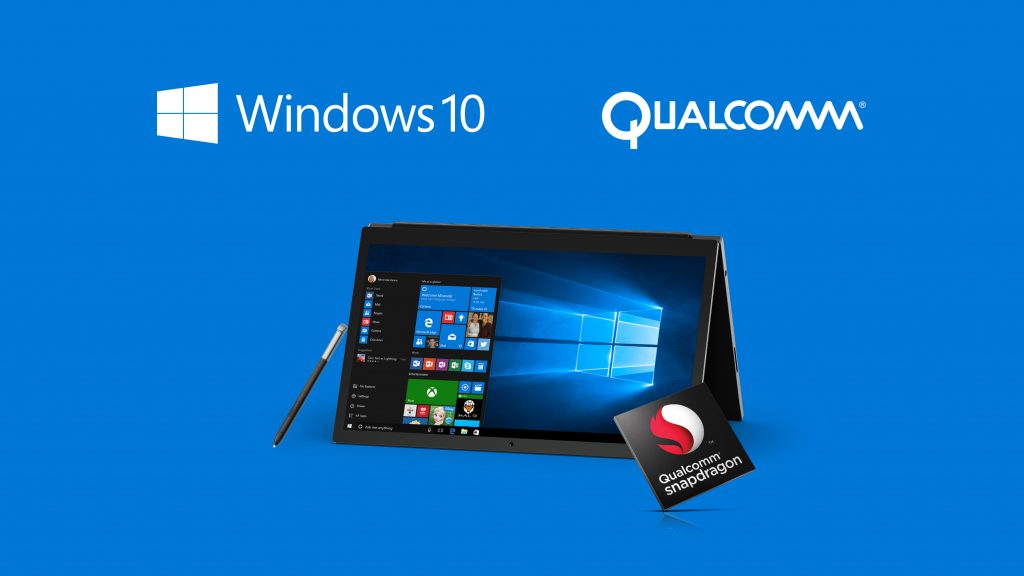Intel patent roadblock may cripple Windows on ARM
3 min. read
Published on
Read our disclosure page to find out how can you help MSPoweruser sustain the editorial team Read more

At WinHEC last year, Qualcomm and Microsoft first announced that they are partnering to bring full Windows 10 support to Qualcomm’s ARM based processors. At Computex 2017 last month, Qualcomm announced partnerships with ASUS, HP, and Lenovo to bring ARM-based Windows PCs to the market. Qualcomm’s Snapdragon 835 will be the platform for these upcoming Windows 10 PCs.
The main difference between Windows RT and the current Windows 10 implementation on ARM is that you can run legacy Windows apps without recompilation. Microsoft is doing this x86 Win32 emulation process. While all built-in programs and kernel run on native ARM code, legacy Win32/x86 apps are emulated using a custom emulator developed by Microsoft. x86 instructions are translated to ARM64 at runtime and cached on disk for fast future use. Microsoft is using the same technique they use for running x86 code on x64 processors. WOW64 is the x86 emulator that allows 32-bit Windows-based applications to run seamlessly on 64-bit Windows.
Coming to the real story, Intel, the world’s largest supplier for x86/x64 based processors may block Microsoft and Qualcomm in supporting legacy Windows apps on ARM based devices. Basically, they will try to block x86 emulation part which is the key technology that will enable this scenario. Intel yesterday posted a press release highlighting the success of x86 for the past 40 years. One of the interesting topics they highlighted was about the IP related to x86 which they own. They have deep and dynamic patent portfolio with over 1,600 patents worldwide relating to instruction set implementations.
Over the past 30 years, Intel has enforced its intellectual property rights against infringement by third-party microprocessors. They have fought with several companies including United Microelectronics Corporation, Advanced Micro Devices, Cyrix Corporation, Chips and Technologies, Via Technologies, and, most recently, Transmeta Corporation. After all this information, they have mentioned the below.
However, there have been reports that some companies may try to emulate Intel’s proprietary x86 ISA without Intel’s authorization. Emulation is not a new technology, and Transmeta was notably the last company to claim to have produced a compatible x86 processor using emulation (“code morphing”) techniques. Intel enforced patents relating to SIMD instruction set enhancements against Transmeta’s x86 implementation even though it used emulation.
Microsoft and Qualcomm are the only companies working in this area. In simple words, we can assume that Intel may sue Microsoft and Qualcomm if they do any sort of x86 emulation without their permission. My guess is that Microsoft would have never started this x86 emulation project unless they would have strongly felt that their implementation does not violate Intel’s IP rights.
Microsoft can argue that whatever they are doing is a software emulation which does not involve hardware at all. In that case, there can be no argument of hardware execution of x86 instructions taking place. When ZDNet tried to contact Intel regarding this issue, they got the following statement from Steve Rodgers, Intel Executive Vice President and General Counsel:
“Intel respects intellectual property rights and we expect others to do the same. x86 technology is both proprietary and central to our business, and we’re concerned any time it appears that others may be copying it inappropriately. We will thoroughly evaluate any products that claim to emulate x86 technology, and vigorously enforce our intellectual property rights if we believe they are infringed.”
Microsoft and Qualcomm have not commented on this issue yet. I hope Always Connected Windows 10 devices from ASUS, HP, and Lenovo powered by the Qualcomm Snapdragon 835 chipset will get released to the market without any issues.










User forum
0 messages